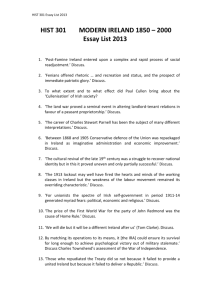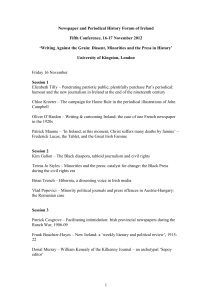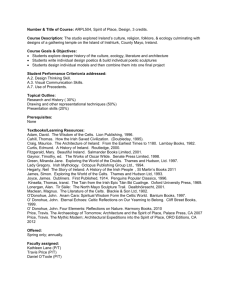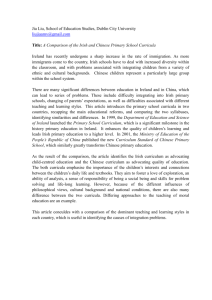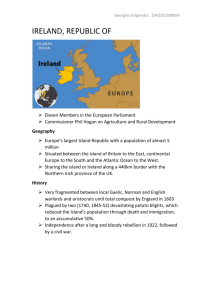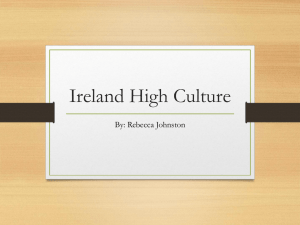Ireland in the 1930s and 1940s: Poverty and Politics
advertisement
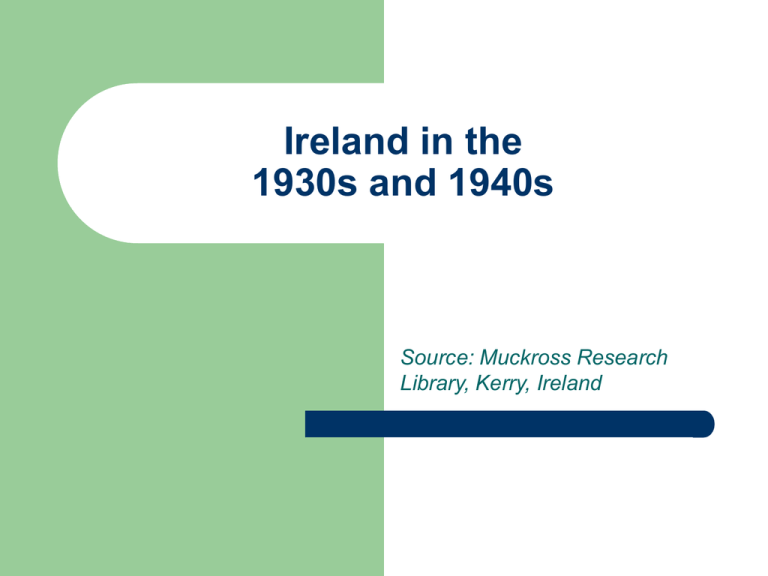
Ireland in the 1930s and 1940s Source: Muckross Research Library, Kerry, Ireland Ireland-1930s and 1940s British Oppression / Anti-British Sentiment The Irish Free State came into being at the end of 1922, following the signing of a Treaty with England in December 1921. (Ended the War of Independence, which had commenced against the British in 1919) Then … Civil War between those who supported and those who opposed the Treaty until May 1923. The anti-Treaty faction opposed the Treaty on the grounds that it did not grant full Irish Independence. Ireland-1930s and 1940s EXTREME POVERTY Ireland in the early 20th century was a poor country. The great majority of the people were living in the countryside, or in country towns and villages. In 1930, the majority of Ireland's population occupied small agricultural holdings. – U.S. depression – no market for crops Big rains affected wheat crops bread rationing Slums: overcrowding, unsanitary conditions (raw sewage, fleas, rats, lice) Ireland-1930s and 1940s Diphtheria and typhoid fever were rampant. Patients were treated in fever hospitals run by nuns. Irish Catholicism was strict.






